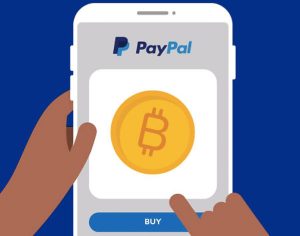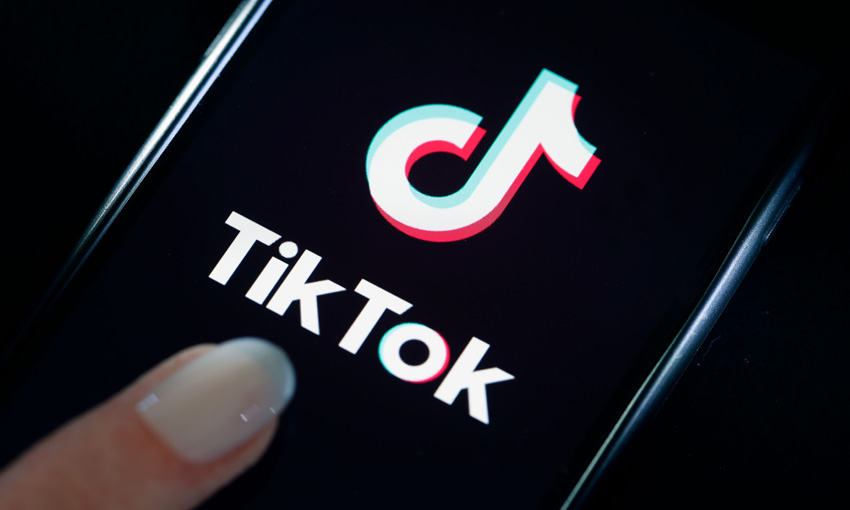Disclosure: Privacy Australia is community-supported. We may earn a commission when you buy a VPN through one of our links. Learn more.
How to Buy Bitcoin with PayPal

Quick: Name five cryptocurrencies. Most people can get Bitcoin and Dogecoin. Ethereum is another one that is popular enough to reach people. Some people know of the Squidcoin drama, but that is a stretch.
But as you can see, everything past Dogecoin is highly niche knowledge. Even Dogecoin has its place. The only cryptocurrency that you can really rely on people knowing about is Bitcoin. But why does that even matter?
Well, a big part of a currency’s value comes from people acknowledging it as valuable.
The recognition of Bitcoin means that you can buy it almost anywhere. That includes digital banking platforms like PayPal. That puts Bitcoin in an interesting position. You see, PayPal is not a trading platform. It is not trying to get you to buy Bitcoin so that it can pressure you into losing it.
PayPal deals strictly in online banking. That means if it sells Bitcoin, it does so because it recognizes Bitcoin’s value. Not that Bitcoin needs PayPal – part of the power of Bitcoin is that it can keep on working even if a big institution like PayPal thinks less of it.
Table of Contents:
- What can Bitcoin Do on PayPal
- What is the Blockchain
- Buying Bitcoin from PayPal
- Why are Goods and Services Restricted
- How PayPal Protects You Against Fraud
- Does Buying Bitcoin on PayPal Involve Fees
What can Bitcoin Do on PayPal?
PayPal basically treats Bitcoin, and all the other cryptocurrency it hosts, like it does normal fiat currency. That means it will facilitate purchases made with Bitcoin, hold the Bitcoin in confidence, and send the Bitcoin to other people directly. Although remember: This is in no way a trading app.
That means that while you could, theoretically, trade cryptocurrencies between two users. It would mean contacting the user directly and trading on the accounts. But PayPal does not offer a marketplace where different users offering to buy and sell cryptocurrency can easily connect to each other.
But more importantly, even if two users exchange cryptocurrency of any kind, Bitcoin or otherwise, that exchange will only have happened on PayPal. It will not be recorded in the blockchain. And if you know what the blockchain is, then that little detail probably set off some serious alarm bells.
If you do not know what the blockchain is, then let’s offer a brief explanation, as it is critical to understanding how Bitcoin works.
What is the Blockchain? ⛓️

We will be brief regarding the blockchain, as it is a deep and nuanced topic, and it has nothing to do with PayPal. It is just important to mention because it is so critical to cryptocurrency (especially Bitcoin) and yet PayPal does not integrate it at all, at least at the current moment.
Most of the money that you make does not get handled in your hands. It goes from your employer, who pays you, to the bank. When you pay for goods and services, it goes from the bank to all manner of people – gas stations, grocery stores, online retailers, and so on and so forth. It is never physically there.
So, if your money rarely ever physically exists, how do we know it is real? How do we even know that you have the money you say you do? The answer is the banks. People trust the banks.
But banks, especially in other countries, are not always trustworthy. That is why cryptocurrencies exist. Rather than their existence being validated by the single, overriding voice of the bank, cryptocurrency is decentralized. That means everyone that holds Bitcoin also holds a ledger of all existing Bitcoin.
This makes the system almost impossible to defraud, at least within the system itself. Bitcoin can only come into your possession by having the “keys” (passwords) to its place on the blockchain. If you never give your keys out, the Bitcoin remains yours. And if you never receive keys, you do not get any Bitcoin.
How Does PayPal Play Into This?
Let’s get one thing clear immediately: All Bitcoin exists on the blockchain. That includes the Bitcoin you get through PayPal. The issue with PayPal is that when you buy Bitcoin from them, you do not get the Bitcoin transferred to you on the blockchain. It technically remains in their possession.
So, that might have you wondering: How is Bitcoin bought through PayPal in that case?
Buying Bitcoin from PayPal 💵️
Let’s go step by step to see how you can buy Bitcoin from PayPal.
Step One: Set up an Account
This is a bit of an obvious step on the surface, but there are some nuances you will want to pay attention to. For instance, how you fund your account. You can use a credit or debit card and incur a transaction fee in the process. Direct wire transfers from a bank account will not carry this charge with them.
Whatever you choose, this will be the payment method with which you buy Bitcoin.
Step Two: Buying the Bitcoin
Once you have your account funded, go to their options menu and select “crypto”. This will prompt you to buy Bitcoin, Ethereum, Litecoin, or Bitcoin Cash. Bitcoin Cash has its own appeals, but we recommend sticking with Bitcoin. Bitcoin Cash is an attempt to tie Bitcoin to the US Dollar to make it cheaper.
Why would anyone want to make a deliberately less valuable currency? Well, simply put, Bitcoin is too expensive for most people. Bitcoin Cash is appealing for how accessible it is.
Bitcoin itself is far better to invest in overtime, however.
Step Three: Using Your Bitcoin
Now that you have the Bitcoin in your possession, it is time to use it… So, how do you do that?
There are three main things you can do with Bitcoin on PayPal: The first is to spend it on goods and services like you would with any other form of currency. You are restricted to the goods and services PayPal allows you to buy, however, for reasons we will get into in a bit.
The second thing you can do is trade Bitcoin with other PayPal users. As we mentioned earlier, there is not a great infrastructure for this, nor is there a lot of reason to do this. It is an extremely makeshift way of trading your Bitcoin for cash.
And the last thing you can do is trade your Bitcoin for cash to PayPal themselves. This is why most people buy it: They buy Bitcoin when it is cheap and sell it back to PayPal when it is expensive.
Why are Goods and Services Restricted? ❌️
So, if you get your Bitcoin through PayPal, you are only going to be able to use it on goods and services that PayPal lets you use it on. Why is that? And how is that? Is this a good thing or a bad thing?
Why PayPal Restricts You
Let’s pull together some of the loose threads we have left lying around, starting with our discussion of the blockchain. The blockchain is where all Bitcoin exists. And like we said, Bitcoin on the blockchain only truly belongs to you if you have the keys to it. Well, PayPal does not give you the keys to it.
Because of this, you do not own the Bitcoin you buy from them. They own it.
How PayPal Restricts You
This is a big reason why they only allow you to use that Bitcoin to do business with pre-approved storefronts. As a result of PayPal owning the Bitcoin you buy from them, when you buy something with Bitcoin, it is actually PayPal who is buying it. That is when an actual transaction of Bitcoin takes place.
The end result of the whole interaction is that you never actually own any Bitcoin. If PayPal were to go out of business, your Bitcoin would disappear with them. And if PayPal decided that they did not like you very much, they could easily seize your Bitcoin without you being able to do anything about it.
Is This a Good or a Bad Thing?
Well, from the way we talked about it you can see that it has serious drawbacks. But it should be noted that PayPal is absolutely not in the business of seizing people’s money for no reason.
PayPal will lock suspicious accounts, but they are known for having a good customer support system for getting them unlocked (by necessity – it is people’s livelihoods they are dealing with).
The whole reason why PayPal’s Bitcoin trade works in this way is because it is considered a layer of security on their part. That security works two ways. The first is by securing you against fraud. It is too easy for people to buy Bitcoin from a normal trading platform and lose it to someone just as fast.
Obviously, Bitcoin has its own protection against fraud due to the blockchain. But remember, we said that the blockchain only protects Bitcoin holders from fraud within the blockchain. A person can still trick another person into giving up their keys thinking it is a natural and normal part of a transaction.
The second reason as to why PayPal restricts Bitcoin like this is to protect itself. After all, imagine the user experience of someone who buys Bitcoin and loses it the next day. Some trading platforms make this far more possible than you would think by letting traders direct message each other.
How PayPal Protects You Against Fraud 🛡️
So, PayPal is faced with a decision: Do they keep their direct messaging and peer-to-peer trading system while still allowing people to come into direct ownership of their Bitcoin? Doing so would mean allowing situations where people are swindled out of their Bitcoin.
Do they get rid of their messaging and trading to keep their customers safe from that sort of fraud?
The decision they went with is that they keep the messaging system, and just never allow their users to truly own the Bitcoin. This protects the user against fraud, because if someone somehow tricks them into giving up the Bitcoin, then PayPal can just credit it back to the defrauded person’s account.
Any Bitcoin trade on PayPal is just a trade between PayPal and itself, after all.
On top of all of this, most people do not know about the existence of the blockchain to begin with. This means that by omitting the blockchain entirely, they create a more intuitive and safer environment for their users. Yes, it comes at the cost of your freedom to do what you want with your Bitcoin.
But that freedom can be found elsewhere.
Does Buying Bitcoin on PayPal Involve Fees? 💰️
After all that technical talk, it is good to settle down with a question that everyone can understand. And the answer is yes: Buying Bitcoin (or any cryptocurrency) on PayPal involves paying certain transaction fees. This is the case for all online crypto exchanges, keep in mind, and PayPal’s are about average.
From $1 to $25, PayPal will only charge you $.50 of a fee, flat. Their $25 to $100 fee is the highest at 2.3% of your transaction. Be sure to pay attention to the fact that the fee switched from a flat dollar amount to a percentage. And then the next fees are from $100 to $200 at 2%, $200 to $1000 at 1.8%, and %1000 and up at 1.5%. Essentially, the more you buy, the less you pay.
This is meant to encourage users to spend big and get in with a large amount.
Conclusion ➡️

Those are the details behind how to buy Bitcoin on PayPal. Bitcoin exists on the blockchain. In fact, it gets a lot of its value from the security provided by the blockchain. But while PayPal’s Bitcoin is (obviously) still on the blockchain, it never really passes into your possession.
While this does limit how you use PayPal, it also provides a good amount of security and ease of use for the Bitcoin you get from PayPal. After all, not everyone wants to deal with a Bitcoin wallet.
In the end, the choice of convenience or freedom is up to you. Whatever you choose, your Bitcoin will still be valuable, and you can always sell it back to PayPal themselves to make a profit.
You Might Also Like:






